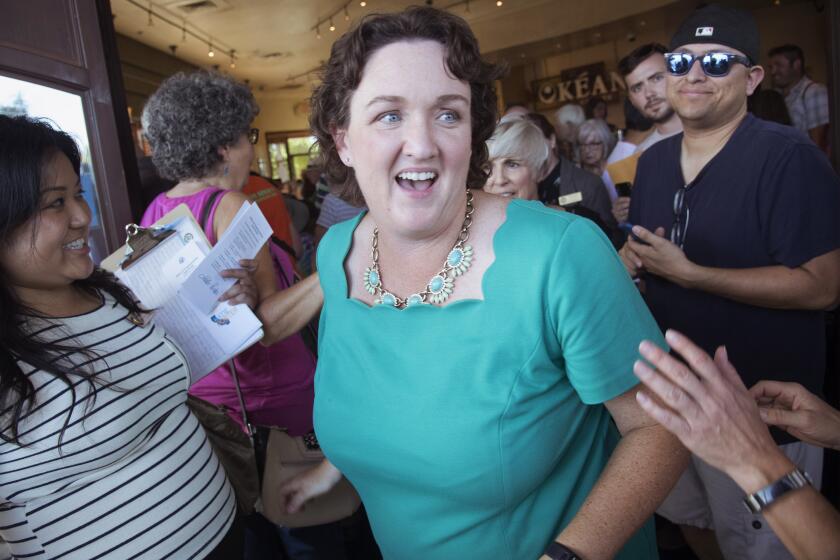Diversity? We Hardly Know Each Other
- Share via
Two recent events have marked our progress in the pursuit of a more just society. Sen. Joseph I. Lieberman, an Orthodox Jew, was nominated for the vice presidency, and we commemorated the one-year anniversary of the Granada Hills shooting with solemn commitments from numerous quarters to combat hate crimes. Despite the good news, we ought not be too satisfied.
The Lieberman nomination is a historic landmark, and while hate crimes overall are up in L.A. County, we have not witnessed the kinds of shocking events that earned the summer of 1999 the moniker “summer of hate.” But the absence of violence and the success of one man is hardly an indicator of where society and this city should be.
Bigotry and hate crimes have become the subject of public forums and rallies; innumerable commissions have explored the subject (three in California alone over the past year), and court cases have upheld the constitutionality of statutes regulating bigoted, hate-motivated conduct. Lieberman’s faith has been the subject of national interest--almost all the coverage affirmative and genuinely curious. Yet something is not right; the absence of the negative is not a positive.
Five days after the Granada Hills shooting, several thousand people gathered to demonstrate their solidarity in the wake of the shootings. Muslims, Jews, Christians, gays and lesbians, Filipinos, African Americans and countless others joined arms and, for a fleeting moment, transcended their differences and outlooks and shared common ground. When else in the past year have we shared any common ground? How many instances were there in which people mingled across socioeconomic, racial and ethnic lines?
The unity rally of last August is, unfortunately, an aberration in a city in which so many of us live in racial and ethnic isolation. We spend much of our lives living and working in distinct areas of the city with little contact among the diverse groups that have made us unique in the world.
We don’t walk on the same streets; we don’t share public transportation; we don’t even enter sports arenas through the same doors. We simply don’t know each other.
In this, the most diverse city in the world, our physical isolation reflects our psychological isolation as well. Local television news and talk-radio hosts have convinced us that danger lurks at every red light and in every community with which we are unfamiliar. And the sad fact is that most of us are unfamiliar with any communities except our own.
Recently, there have been rare moments of shared experience, metaphorical common ground that gave us a taste of what can be. During the Lakers’ run to the world title, virtually everyone shared the excitement. Cab drivers talked to their passengers, supermarket clerks offered coaching advice to those in checkout lines. The nation’s fascination with Lieberman’s Orthodox views belies how little we really know about each other and how hungry most of us are to learn.
These transient episodes of “common ground” should spur us on to re-create that spirit and feeling on a permanent basis. The citizens of L.A. ought to demand no less. We must look beyond ourselves and our balkanized communities to recognize that we are the most diverse city in the world with profound, occasionally troubling, differences. Yet those differences must be transcended by a sense of shared fate and shared interests.
Then and only then can we truly celebrate the symbolism of the Lieberman nomination and of the broad-based commitment to vigorously combat hate.
More to Read
Get the L.A. Times Politics newsletter
Deeply reported insights into legislation, politics and policy from Sacramento, Washington and beyond. In your inbox twice per week.
You may occasionally receive promotional content from the Los Angeles Times.










